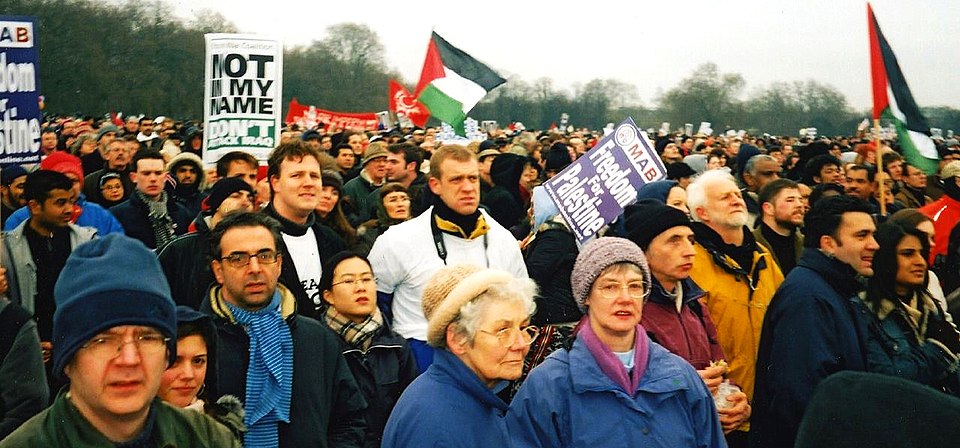Hello Colin. Thanks for talking to us. Could you start by introducing yourself. Who are you, and why are you interested in Scottish independence?
I am Colin Macpherson and have been living in Germany for 35 years, initially in Munich and now in Straubing. I first became interested in Scottish independence as a teenager. When the Iron Curtain fell, all of a sudden, new independent countries were being created, many smaller than Scotland. And my feeling was why can they do it and Scotland can’t? This was of course towards the end of the Thatcher years and all the devastation they had inflicted on Scotland. With technological advances over recent years it has become much easier to keep up with what is happening in Scotland and this has made it possible for me to become far more involved in the campaign.
On 11th March, Germans for Scottish Independence are organising an Independence demo in Berlin. Why are you demonstrating here?
Our group’s aims are to raise awareness of the independence campaign in Germany and show our colleagues in Scotland our support. Berlin is the obvious choice to maximize publicity.
Who are you expecting to take part on the demonstration? Who is involved in your campaign?
Our group started off in 2013 as a Facebook page and so it remains very loosely structured and a broad church – mainly Germans in Scotland, Germans in Germany, Scots in Germany and Scots elsewhere. Often, but not always, there are personal links, either having spent time in the other country or having friends and family there. We expect that the attendance will reflect that and look forward to welcoming both people who have travelled from other parts of Germany and from Scotland. Amongst others Kevin Gore will be providing music and Neale Hanvey MP will be speaking.
There have been a lot of demonstrations for independence in the last few years. Have they been effective?
One could argue no because Scotland is not independent yet. I prefer to see them as being part of the reason that despite the referendum result in 2014, independence is still firmly on the agenda. While unlikely to persuade people who are not yet convinced of independence, they serve to increase awareness and show that we are not getting back in our box.
Many progressive people look at the nationalism of the conservatives and neo-Nazis and say that they are against all nationalism. What is different about Scottish Nationalism?
I prefer to speak of the independence movement, and indeed some have suggested that the SNP ought to change its name to avoid such confusion. The former promote a sense of being better than others based on nationality or ethnicity. In Scotland things are far more inclusive and it is not about being inherently better than anyone else, merely that the people of Scotland are better placed to make decisions which affect the daily lives of people in Scotland.
Aren’t you better off uniting with the English workers currently striking against the Tory government?
The two are not mutually exclusive, but it is also not that simple. Current strikes in the NHS or education, for example, are devolved issues. So, while the Scottish Government has a finite budget with limited powers to raise further funds the strikes in Scotland are not directly strikes against the Tory government. In the future we would hope that the fairer society we would like to see in an independent Scotland would also prove beneficial to workers in England and elsewhere by showing how the current system can be changed.
How has the case for Scottish independence changed since Brexit?
Brexit was probably the best example to show the need for independence, both on Scotland being dragged out the EU against its will and the refusal of the UK government to even consider a bespoke solution reflecting the will of the Scottish electorate. It has certainly contributed to many in Europe being more sympathetic to the idea of independence. At the same time I think that we should guard against equating independence with EU membership – that should be a decision made by the people of Scotland after independence.
In 1999, Scotland was given its own parliament. Yet, the Westminster government recently refused to allow the Scottish parliament to pass the Gender Recognition Act. Just how much autonomy does Scotland currently have?
Along with the recent Supreme Court decision and the Internal Market Bill that is a whole new question which is yet to be answered. In theory many areas are devolved, but once the can of worms is opened, that laws can only be passed which the Westminster government agrees with, it becomes dangerous territory. While we can welcome many laws passed by the Scottish Government it remains to be seen what the future brings – we are already seeing threats to block the bottle return scheme. Ultimately power devolved is always power retained.
Has the recent resignation of Scottish National Party leader Nicola Sturgeon strengthened your campaign or weakened it?
Independence is never about one party, far less one person, although the glee with which Unionist politicians and media greeted the announcement suggests they see things differently. The arguments in favour of independence have not changed, however the campaign still needs the politicians as the vehicle to Scotland regaining independence. Much will depend on who wins the leadership election and how they engage with the wider movement.
Finally, how can people in Berlin practically support your cause?
Spread the word and come and join us on March 11th. We gather at the Brandenburg Gate to set off at 11 a.m. and move on to Alexanderplatz for the rally.




